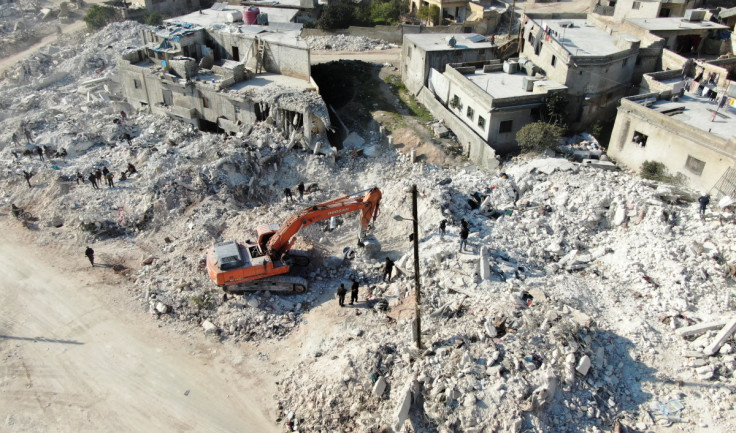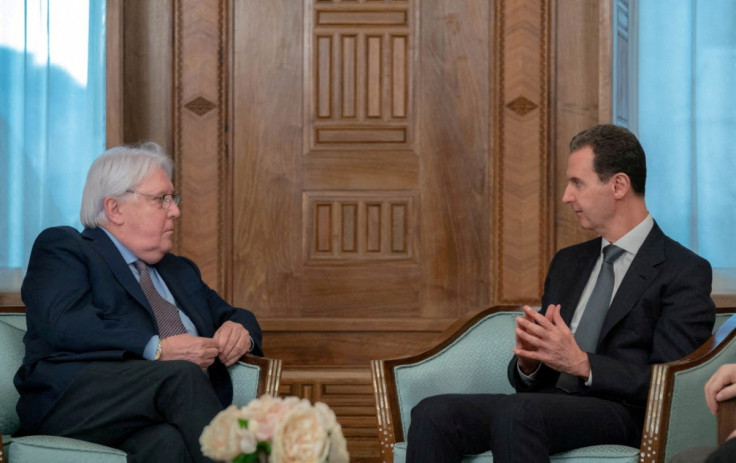U.N. Chief Says Syria's Assad Agrees To Expand U.N. Aid Access From Turkey

Syrian President Bashar al-Assad has agreed to allow U.N. aid deliveries to opposition-held northwest Syria through two border crossings from Turkey for three months, U.N. Secretary-General Antonio Guterres said on Monday.
Assad agreed to open the crossings of Bab Al-Salam and Al Ra'ee, Guterres said in a statement after UN aid chief Martin Griffiths met with the Syrian president in Damascus on Monday. Griffiths briefed the UN Security Council of Assad's decision during a closed-door meeting, diplomats earlier told Reuters.
The move comes a week after an earthquake struck Turkey and Syria, killing more than 37,000 people. Assad's agreement means the United Nations could now use a total of three border crossings from Turkey to reach the northwest of war-torn Syria.
The United Nations already has a Security Council mandate to use the Bab al-Hawa border crossing. It has been using that route since 2014 to deliver aid to millions of people in need in the northwest. The Security Council agreed the mandate after the Syrian government opposed the measure.
"As the toll of the Feb. 6 earthquake continues to mount, delivering food, health, nutrition, protection, shelter, winter supplies and other life-saving supplies to all the millions of people affected is of the utmost urgency," said Guterres.
"Opening these crossing points - along with facilitating humanitarian access, accelerating visa approvals and easing travel between hubs - will allow more aid to go in, faster," he added.
The Syrian government has opposed the aid deliveries across its border, describing it as a violation of its sovereignty. It says more aid should be delivered across the frontlines of the 12-year-old civil war.
It was not immediately clear if some western council members might still push for the adoption of a resolution to enshrine Assad's three-month agreement to open two border crossings. A resolution would need nine votes in favor and no vetoes by Russia, China, the United States, Britain or France to pass.
Russia's Deputy U.N. Ambassador Dmitry Polyanskiy said a resolution was not needed "because it's a sovereign decision of Syria." He said the current Security Council mandated U.N. aid access through the Bab al-Hawa border crossing was a violation of Syria's territorial integrity and sovereignty.
Polyanskiy said any push for a resolution would politicize the issue and not help Syrians.
Syria's U.N. Ambassador Bassam Sabbagh confirmed Syria would support the delivery of humanitarian aid through all possible points from inside Syria or across the border for three months. He told reporters a council resolution was not needed because it was an agreement between Syria and the United Nations.

© Copyright Thomson Reuters 2024. All rights reserved.





















